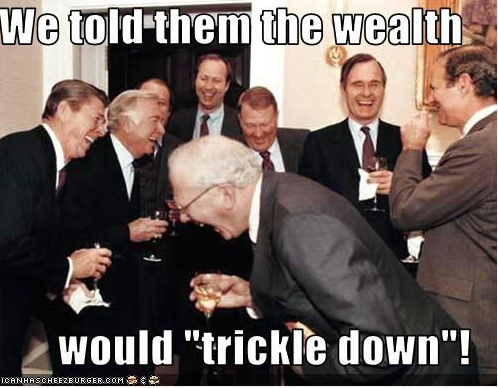At a press conference September 21 the chair of the US Federal Reserve Jerome Powell said that that the “economic pain” being felt as the economy slowed would be continued for “how long it takes to bring wages down” before trying to correct his political admission of the Feds priority target by adding “and more importantly for prices to come down.”
He identified the pain arising from higher mortgage rates as the “housing market weakened considerably”. Business investment and exports were also declining.
But the real enemy remained working people because he claimed: “Despite the slowdown in growth, the labour market has remained tight, with the unemployment rate near a 50-year low, job vacancies near historical highs, and wage growth elevated.”
Why low unemployment and wage growth are problems is never explained. The New Zealand Reserve Bank Governor Adrian Orr repeated this economic logic when he declared on February 22 that “Employment is above a broad range of estimates of its maximum sustainable level”, also without explaining why.
Moreover, in both the US and NZ it is simply a lie that inflation was caused by low unemployment or high wages when it is clear to everyone that prices are rising at a rate much higher than the increase in wage rates in both countries.
The US Fed and the RBNZ were in fact the central creators of the surge in inflation by printing money in excess of demand to confront the Covid crisis. They know that and simply lie to evade responsibility.
Capitalist economic theory has no scientific evidence to support its claims. What they have is a series of rationalisations to pursue an economic and social policy that permanently enriches the already rich at the expense of working people.
What the bosses hate about low unemployment is that it empowers working people in the “job market”. During periods of low unemployment workers individually and collectively have more power. Individually, they can tell the boss to shove it he doesn’t pay more or treat them with respect. Collectively they can join unions and strike for better pay and conditions without the threat of being sacked as much of a threat as it would be with higher unemployment.
That is also why the bosses love to have access to the world labour market by bringing in workers with fewer rights than NZ-resident workers have to keep wages as low as possible. That is why pre-Covid we had 300,000 workers on temporary visas – over 10% of all workers.
But in recent decades we never have had a period of low unemployment when the “labour market” like any market was allowed to work properly. For example, you need periods of low unemployment to improve margins for skills to what the actual costs are to get those skills. That is why New Zealand is so desperately short of skilled labour. The free-market theorists manipulated the free market for labour to prevent it from functioning properly. They made up a dogma called the Natural Rate of Unemployment which had to be at least 5% to justify their views.
The previous period of high inflation in the 1970s was also a period of widespread working-class activity to defend wages against inflation. Millions joined unions and took action across the globe. In New Zealand, there was a record level of strike action and two general strikes. This resulted in real wages – the real value of wages after inflation – peaking in the early 1980s and union membership hitting over 50% of the workforce.
Inflation in the 1970s was caused by huge government budget deficits in the US in particular to finance their wars abroad and the welfare programmes needed at home to maintain social peace following the explosive growth of the civil rights movement that swept the country at that time.
So it suited the deeply anti-working class economic theorists at that time to try to blame working people for inflation and use unemployment to try and smash the institutions of the working class like trade unions to force back real wages.
The man appointed to Chair the US Fed in 1979 simply declared: “The standard of living of the average American worker has to decline” in 1982 as he pushed the US Fed rate up to 20% with an economic shock therapy that saw official unemployment hit 10% and unions smashed by the government of US President Reagan.
Volker was not just talking in abstract economic terms. He called the action of US President Reagan in breaking the air traffic controllers strike in 1981 by sacking 11,000 workers as a “watershed” moment in the fight against inflation
It is that same programme that was carried out in New Zealand by both the Labour-led government from 1984-1990 and the National-led government that followed.
Union members today are barely 20% of the workforce and 10% of the private sector. But the tiniest signs of workers getting some bargaining power are denounced by those in charge of the Reserve Bank as “unsustainable” and they are willing to impose an economic recession to fix that problem.
There are alternative policies that can be carried out but they involve breaking with the capitalist status quo. To start with we need to put the banking system under public control and put money creation under a democratic plan. Interest rates can then be kept low for homeowners and small businesses and not used to enrich the financial oligarchy that owns and controls the banks in Aotearoa today.
It means giving everyone a job at a living wage with a reduction in the working week if needed with no loss in pay to share the jobs around.
It means a massive increase in taxes on the very rich so that all the social spending needed in health and education can be done in a non-inflationary manner.
The working class majority needs to call the shots through a government that serves their needs above those of the 1% calling the shots today.





Very true. We need a Reserve Bank run in the interests of New Zealanders, funding government programs directly- not in the interest of interest earned by foreign banks.
Yes, “Mark”. Agreed.
I do find it amusing that you continue to use the above ‘Trickle Down’ meme yet don’t find the irony that thats exactly what could be said about all the treaty settlements only going to the Maori elite.
@ BG… Are you Maori? Who are the ‘Maori elite’ ? And wouldn’t [that] be the business of Maori anyway? It’s Maori only business as to what Maori do with their treaty settlements, do I really need to point that out?
We have now nine white multi-billionaires and they’re not trickling anything anywhere. Unless it’s urine trickling out their worn out old plumbing.
‘Trickle down’ economics never fooled me. The very term has always had a glib and patronising smell to it.
AO/NZ’s politics and economics is a tightly woven fabric of bullshit. Our economy’s been plundered for decades and as far as I can see nothing’s changing in the foreseeable future while on our current heading.
Brilliant Post @ Mike Treen. You’re a very clever and good man.
I had seen a news story about one tribe that invested their settlement money in the share market and lost the lot.
I think the evidence on the ground is the number of maori we see struggling to survive, in poverty, poor living conditions. If the treaty money were going to help these people we wouldnt be seeing what we do.
but bg this piece isn’t about that is it? but we can always rely on a racist trying to skew the debate….yawnnnn
Great content Mike T…why are the people affected so apathetic?
The latest US Treasuries bond sale collapsed for a lack of buyers, nobody trusts the US to not confiscate or pay. Treasuries are Moby Dick to the Stock Markets minnow.
Saw a classic line that went, “I saw a homeless man so I drove to a wealthy suburb and put $100 into a letterbox. I’m sure it will trickle down to the homeless man”.
There has never been a single Economics paper written that describes “trickle down”. Cool soundbite thought. Way better than trying to explain Marxist theories of economics.
that maybe so tom but the right use the term…and I’m still waiting for a working example of the alleged process….yup state capitalism failed…but so has the neo-lib experiment whilst social democracies whilst not perfect aren’t actual shitholes…so you pays yer money you takes your choice
The US Fed created money by buying all those Treasury bonds that the US government needed so it could pump money into the economy. Classic Keynesianism – except in this case it was not to meet a demand-led recession but a poduction-led one, courtesy of government shutting down the economy as much as it could. Bad move since that meant inflation was baked in from at least mid-2020.
So it’s fair to blame the government as well as the US Fed. They do work together you know.
Also, inflation is already killing wages and salaries in the US and pumping them up will simply paper over the problem. Like those wage increases you boast about from the early 80’s didn’t work, at least not for me – the inflation just pushed even higher and soon I was behind again. AS far “union smashing” is concerned, well look at this chart which shows a steady decline even in Australia where they supposedly lead to better wages. Our union density is a bit more bumpy but we’re at much the same place as the Aussies in the 2000’s.
wage stagnation…actually wages being ‘held down’ for 40yrs and the consequent over reliance on household debt is a bit of an issue too tom
Comments are closed.